Askold and Dir. Mystery of the first Kiev princes
Askold and Dir are legendary princes who, at the end of the 9th century, ruled Kiev, adopted Christianity and laid the foundations of ancient Russian statehood. This is the generally accepted version, but there are many contradictions in it.
Sources of
The information we draw from stories Ancient Russia, collected mostly in the Tale of Bygone Years, as well as in later chronicles, which are largely based on the first. The reliability of such documents by modern historians is questioned: it is not only a matter of chronological inaccuracies or confusion of facts.
The chronicles were repeatedly copied, and, accordingly, mistakes gradually crept into them, or even worse, conscious distortions of events in favor of one or another political idea.
Lev Gumilev believed, for example, that the chronicler Nestor viewed history as a policy facing the past, and therefore altered it in his own way.
Nevertheless, if you have independent sources of information - not only Old Russian chronicles, but Byzantine, European or Arabic documents, then you can generally restore the picture of the events of a long past era.
From Varyag to Khazars
The Tale of Bygone Years reports that Askold and Dir were the Varangian warriors of the Prince of Novgorod Rurik, who begged him to march on Constantinople (Constantinople). But in the Nikon Chronicle, they appear as Rurik's enemies: dissatisfied with the division of the volosts, the warriors participate in an uprising organized against him.
Anyway, having gone down the Dnieper, the Varangians saw on the hill a glorious city founded by Kiy. Having learned that there is no ruler in the city, and that its population pays tribute to the Khazars, they decided to settle down and reign there.
In the Ustyuzhsky chronicle arch, it is said that Askold and Dir were "neither a tribe of a prince, nor a boyar, and Rurik would not give them neither hail nor a village." Apparently, the trip to Constantinople was only a pretext, and the ultimate goal was to get lands and a princely title.
The historian Yu. K. Begunov claims that Askold and Dir, having betrayed Rurik, turned into Khazar vassals. There is no information about the defeat of the Khazars in Novgorod (and it was not easy to do this), which means this version has the right to life - otherwise the Khazars (and their mercenaries) would not allow the Varangians to dispose of their patrimony so easily. But perhaps there was an agreement on both sides - in the face of disgraced Vikings, the Kaganate saw a serious help in confrontation with the powerful Rurik.
Hike to Tsargrad
In addition to the Tale of Bygone Years, we learn about the raids of the Rus (the Greeks called the peoples living north of the Black Sea) from Constantinople from the Byzantine and Italian chroniclers, which gives the information more confidence. True, sources differ in the definition of dates: the 866 year is indicated in the Tale, and according to Byzantine data it is the 860-861 years, however, making allowances for the inaccurate chronology of the Tale, it can be assumed that this is about the same events.
The Byzantines, tormented by the war with the Arabs, did not expect an attack from the sea of the Rus. According to various sources, the coast of Constantinople has come from 200 to 360 ships.
The Byzantines poorly imagined where the army came from, but the chronicler Nestor speaks of the troops of Askold and Dir, who plundered the environs of the Byzantine capital and threatened to take Constantinople.
Only thanks to the earnest prayer of Tsar Michael and Patriarch Photius, and the robe of the Most Holy Theotokos, which had been soaked in the sea, a miracle happened: a storm suddenly broke out, and the huge waves and strong winds scattered the ships of the "godless Russians" - few were able to return home.
Christians or Jews?
In some sources it is reported that after the defeat of the Rus, Byzantium establishes relations with the young Old Russian state and begins to conduct its missionary activities there. Filaret Gumilevsky writes that "according to the undoubted voice of history, Kievan Rus heeded the evangelical sermon under the Kiev princes Askold and Dira."
However, Academician A.A. Shakhmatov asserts that in the more ancient chronicles telling about the march on Constantinople there is no mention of Askold and Dir - their names were inserted later, nothing is said about them in either Byzantine or Arabic sources. Moreover, given the possible ties of the Kiev princes with the Jewish kaganate, it is premature to talk about their Christianity: they had much more chances to accept Judaism.
Murder
After the death of Rurik, Oleg became the guardian of his infant son Igor and, in fact, the head of Novgorod — the very one who took revenge on the “unreasonable Khazars”. He remembered disgraced Vikings, and therefore the campaign against Kiev, organized by him in 882, set as his goal the overthrow of the illegal power of impostors. Kiev at that time became a hotbed of unrest - dissatisfied residents of Novgorod lands constantly flocked there, and therefore immediate measures were required.
Oleg took with him a risky campaign of Igor, which could mean one thing: he wanted to show Kiev the legal heir of the Rurik dynasty and put him on the "Kiev throne". As the legend says, by deceiving luring Askold and Dir from the fortress walls, he said: “You are not princes and not a famous family,” but pointing at Igor, he added: “Here is the son of Rurik!”. After that, the Kiev rulers were put to death.
However, according to the 15th century Polish historian Janusz Dlugosz, who largely recounts the ancient Russian chronicles, Askold and Dir were the hereditary rulers of Kiev, the descendants of Kyi, and moreover, brothers, and therefore the overthrow of the Kiev princes looks not only perfidious, but also illegal.
But here one can see Dlugosh’s aspiration to show the validity of the Polish claims to Kiev, since, in his opinion, Kyi is one of the heirs of the Polish dynasty.
Was there a deer?
According to the chronicles, Askold was buried at the place of his death - the high right bank of the Dnieper, but the grave of Dir was behind the Irininsky monastery - not far from the current “Golden Gate”. They are separated by three kilometers: a strange fact, co-rulers (or even brothers), who died in one day, are buried in different places!
It should be noted, some researchers suggest that Askold and Dir ruled in Kiev at different times, but there are those who believe that Askold and Dir is one person. In the Old Norse version of the name "Haskuldr" the last two letters could be separated into a separate word, and with time into an independent person.
Also, Byzantine sources, describing the siege by the Russes of Constantinople, speak of one military leader, albeit without mentioning his name.
The historian B. A. Rybakov gives us an explanation: “The identity of Prince Dir is not clear to us. One feels that his name is artificially attached to Askold, because when describing their joint actions, the grammatical form gives us a single, not double number, as it should have been when describing the joint actions of two persons. ”
The history of the Kiev princes Askold and Dir leaves more questions than answers. The chronicles as the main source of information, unfortunately, sin with inaccuracies or a direct distortion of facts, and archeology is not able to show us a complete and reliable picture of the life of Ancient Russia of the 9th century. Of course, we still have to learn something, but much will remain hidden by the veil of the past millennium.
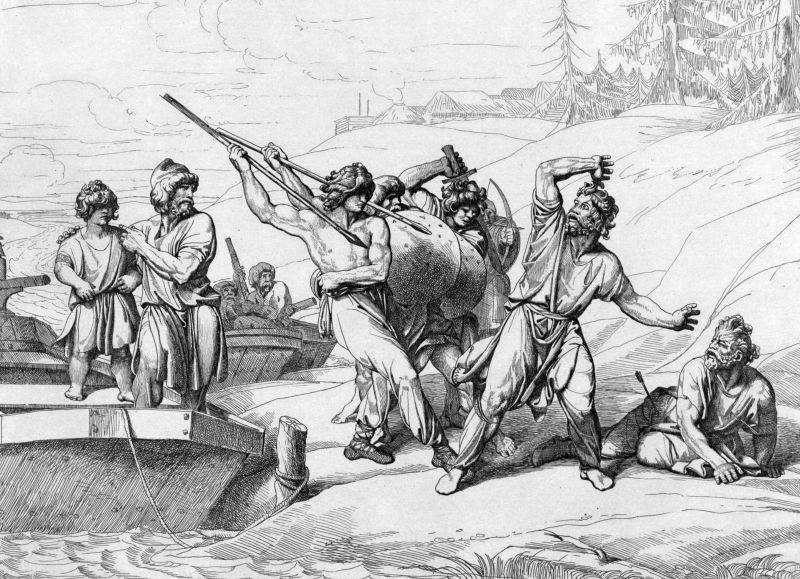
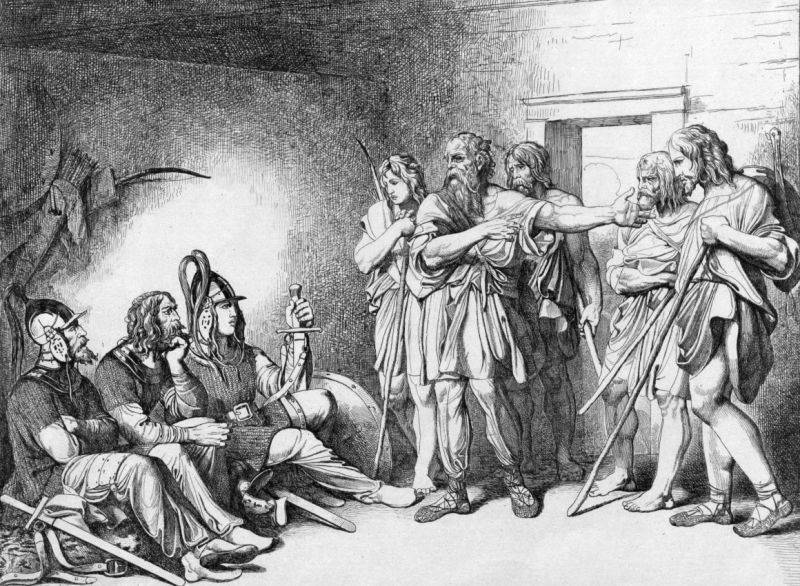
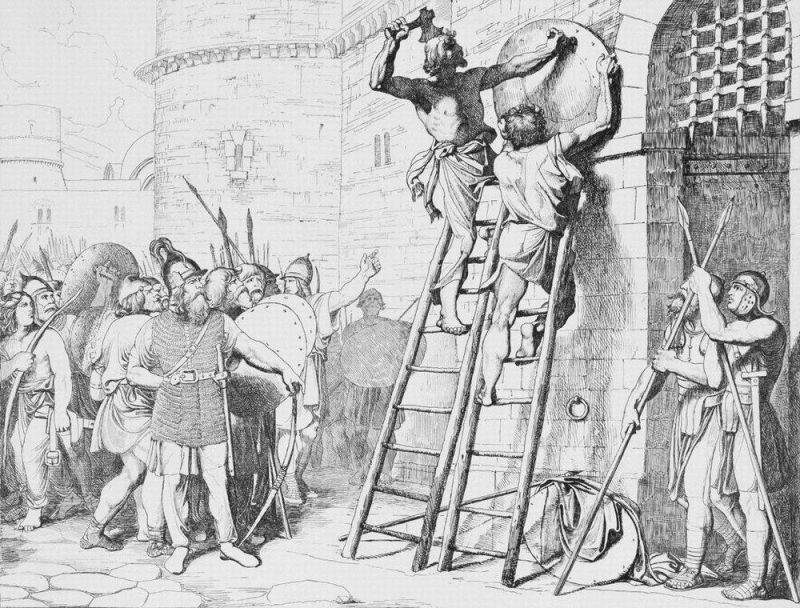
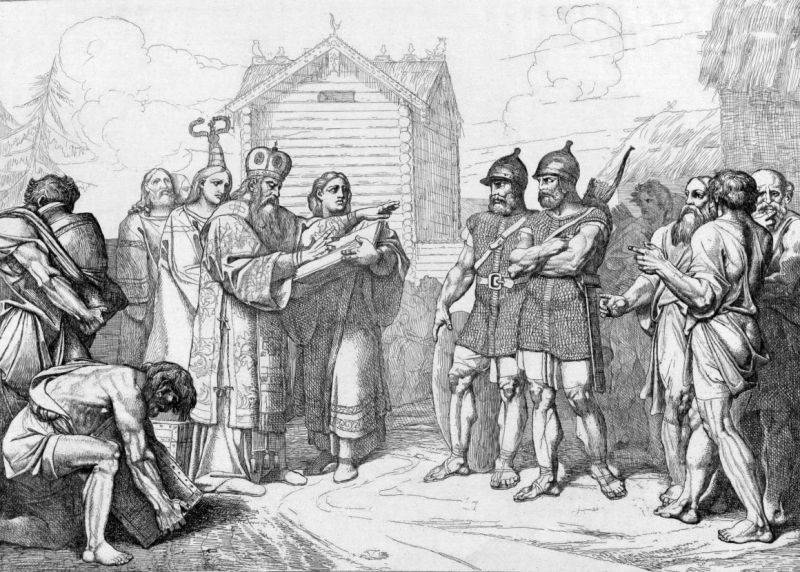
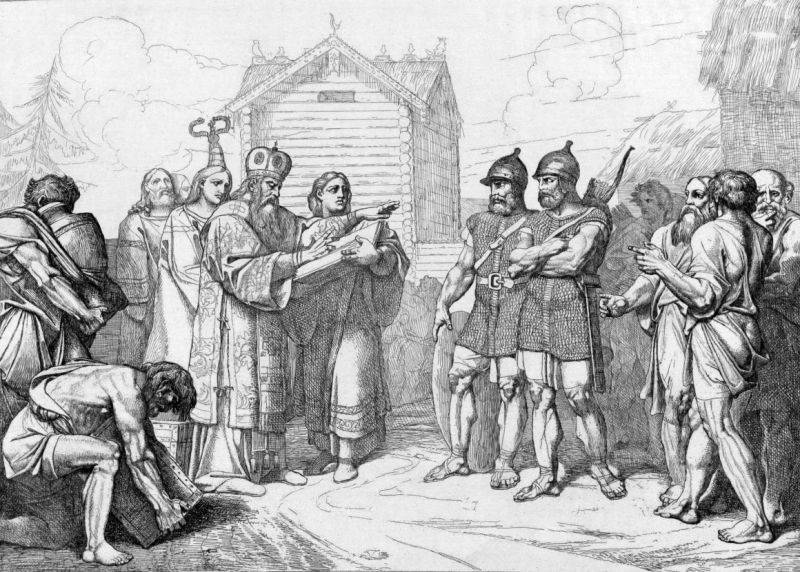
Information